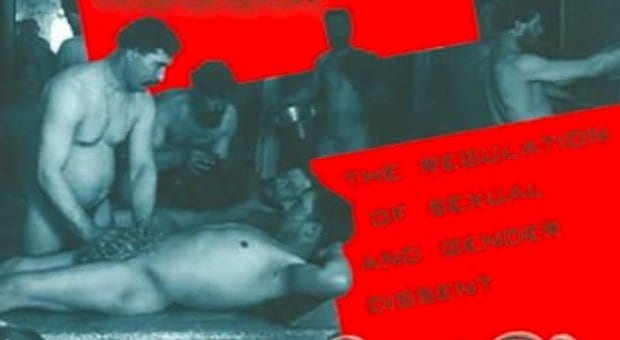Few recent issues have sparked anger and action in the international LGBT community so broadly as the question of so-called hate-laws. Russia’s recently intensified official homophobia, most recognizable in its “anti-propaganda” laws banning representation of LGBT people, became a particularly sharp target of criticism in the moments leading up to its hosting of the Sochi Winter Olympics.
In a lecture at University of Toronto’s Munk School of Global Affairs April 17, historian Dan Healey will discuss the historical forces that led to this important moment. Healey is a professor of history at Oxford and the author of Homosexual Desire in Revolutionary Russia: The Regulation of Sexual and Gender Dissent. Xtra caught up with him before his talk.
Xtra: What will your lecture address?
Dan Healey: In the electoral cycle when Putin announced that he was going to return and run for president, and in the December 2011 parliamentary elections, homophobia began to sharpen quite quickly and unexpectedly in Russia. I found myself being asked to comment on that much more, and I felt that there was a need to systematize events of the last couple of years and put them in a longer historical context. To most observers, it seemed like official homophobia came from nowhere and seemed quite unexpected.
So what is the historical grounding for this rush of official homophobia?
I argue that this was a set of political languages that conservative nationalists in Russia had been shaping, modelling, expanding for about a decade before 2011 and that the powers-that-be judged that the time was not right. That changed with the recent electoral cycle, when the political mood in Russia shifted and the political base that traditionally supported Putin appeared to be deserting him. The economic crisis was biting; ordinary Russians were feeling the slowing down of growth and a rise in prices. So Putin took these ideas off the shelf, where they were being developed by conservative nationalist political narratologists.
Pro-LGBT activists really want to engage in action around this issue, but does it just play into Russia’s attempt to show off?
I don’t think they expected the degree of protest and noise that would be directed at the Sochi Olympics. That caught them by surprise. But they are pretty relaxed about the kind of blowback that this has generated in Europe and North America. Putin and his advisors have clearly devised a line of argument for dealing with it. He’s presented a fairly coherent line as an attempt to mollify a certain section of the Western public opinion. Several times, when Western journalists asked him about LGBT rights issues, he’s kept on with this line that “LGBT citizens have rights in our country, but children must be protected, and we have a demographic crisis to address.” In some sense it’s neutralized a certain amount of protest. You have to realize that Putin is the very first leader of Russia, in all of its history, who has said anything positive about LGBT rights or citizenship.
So what happened at Sochi?
Well, I think the Canadian curlers did very well. [Laughs] But around Sochi, it was interesting to see Putin giving these interviews, talking about how welcoming Sochi would be to gay and lesbian athletes and spectators, but for heaven’s sakes, leave the children alone. And as far as I’m aware, there were no podium protests; there were no explicit protests on the part of athletes. That was a bit of a surprise. Another thing was that, in the opening ceremony, there was quite a long historical section where it talked about love, marriage and family in very explicit heterosexual terms. It seemed to me another two fingers up at the West saying, “This is the way we do things, and you’re not going to alter the way that we think about love.”
But one thing that was quite successful was the relative solidarity of western public opinion around this issue and around national leaderships not sending their highest officials — in the case of Obama, sending a delegation which was explicitly and pointedly inclusive. That made the point without going the whole hog to boycott, which would have been counterproductive.
Homosexual Desire in Revolutionary Russia: The Regulation of Sexual and Gender Dissent
University of Chicago Press
$40
Thurs, April 17, 4pm
The Vivian and David Campbell Conference Facility
Munk School of Global Affairs, University of Toronto
1 Devonshire Place
Free, registration online, munkschool.utoronto.ca/event/16019

 Why you can trust Xtra
Why you can trust Xtra


